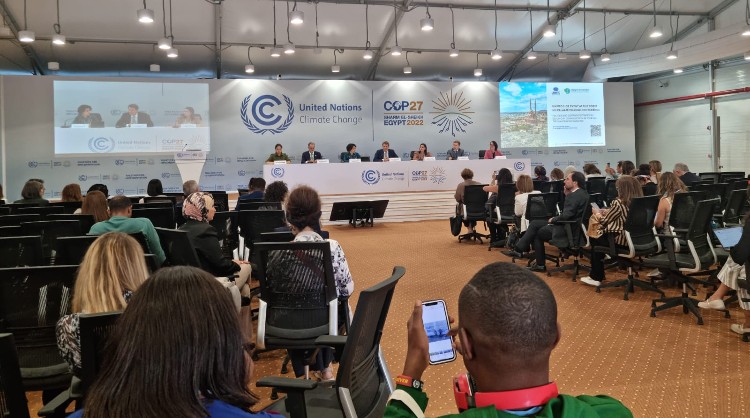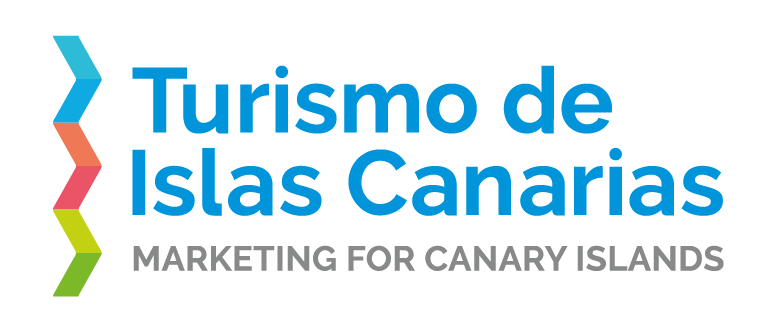
- English
- Español
Canary Islands Tourism presents destination Climate Action Master Plan in Egypt at COP27

We headed to COP27, held in Egypt from 6 to 18 November, to present the Climate Action Master Plan we drew up to drive decarbonisation of the Canary Islands tourism sector. After the plan caught the attention of the World Tourism Organization (WTO), we were invited to make a presentation at this essential forum for the planet.
The WTO side event at the United Nations Convention on Climate Change (COP27) was the venue where we explained the Master Plan to high level politicians and international business leaders. One of the main messages we conveyed at the forum is that decarbonising tourism is a key strategic goal for the destination of the Canary Islands.
Yaiza Castilla, Regional Minister of Tourism, Industry and Trade, took part in a panel with various experts on the morning of Thursday, 10 November, while José Juan Lorenzo, our Executive Director, outlined the technical details of the plan in the afternoon, at the 16th meeting of the Committee on Tourism and Sustainability (CTS), with the talk “Canary Islands: Accelerating Transformation of a Destination”.
Decarbonising tourism is a key strategic objective for the destination of the Canary Islands.
Commitment to Glasgow Declaration
During the talks, we had the opportunity to highlight Canarias Destino (Canary Islands Destination), a transformation strategy we created in March 2021 for the Canary Islands tourism model that includes decarbonisation. Since then, we’ve multiplied our efforts in the search for strategies and tools to work towards climate neutrality.
We reminded attendees about the importance of tourism for the Islands, as it accounts for 40% of employment and 35% of GDP, stressing that, as an island territory and because of our geographical location, the Canary Islands are particularly vulnerable to the effects of climate change, which can put our economic engine at risk.
In 2019, the carbon footprint of Canary Islands tourism, excluding air and maritime traffic, was 1.85 million tonnes of CO2, an amount we have to reduce.
The 2019 carbon footprint of Canary Islands tourism, excluding air and maritime traffic, is estimated at 1.85 million tonnes of CO2, an amount we have to reduce through a suitable strategy of measuring, assessing and continuously sharing information to reach the goal of 50% by 2030.
As a result, the entire Canary Islands tourism sector has joined the Glasgow Declaration, an exceptional opportunity to become involved in a global, coordinated vision to face the huge challenge of climate change. When the road map was first conceived, we were already working on action plans, putting together some of the tools especially intended for small and medium-size companies to help them on their decarbonisation journey.
The seven Cabildos and more than 30 organisations from the Canary Islands tourism sector have joined the Glasgow Declaration, with the completed Climate Action Plan.
On 24 October, the seven Cabildos (Island Councils) and more than 30 organisations joined the fight against climate change with the completed Climate Action Plan.
As well as highlighting the commitment of the Canary Islands tourism sector, we reminded attendees about the need to implement the plan simply but effectively, involving as many operators as possible to ensure a coordinated effort that will affect both the destination as a whole and each part of the destination.
Own sustainability tools and methods
During the sessions at COP27 we also informed attendees about the digital tool we’ve designed using our own method tailored to the needs of the destination and tested with a pilot experience involving 35 companies. The tool will help businesses measure their carbon footprint, free of charge, and allow them to gather and consolidate real information about emissions by Canary Islands tourism as a whole.
A digital tool will help Canary Islands businesses measure their carbon footprint free of charge.
The technological tool made available to businesses will give them a private space comprising four key sections:
- Calculate, using the procedure designed to measure their carbon footprint.
- Define, so they can draw up their own climate action plan.
- Reduce, using a range of actions specific to their economic activity.
- Compensate, through a space with a list of projects being developed at the destination.
In addition, a Sustainability Office will be set up to advise and support tourism companies, with a detailed catalogue including more than 220 reduction measures for different types of business activity.
The 170 million euros in funding will be used to support the climate action plans of businesses and public institutions in Canary Islands tourism.
We also highlighted the funding made available to support the climate action plans of local businesses and institutions, which totals 170 million euros and is mostly from EU Next Generation Funds.









 Return
Return